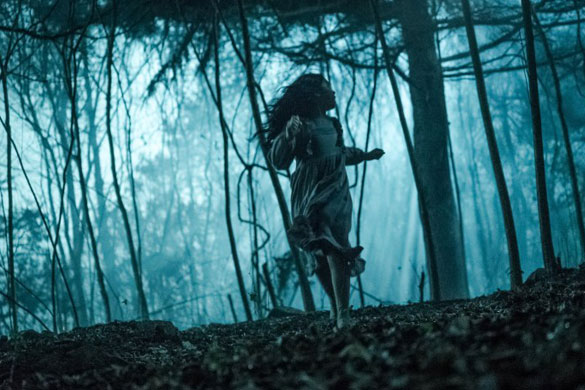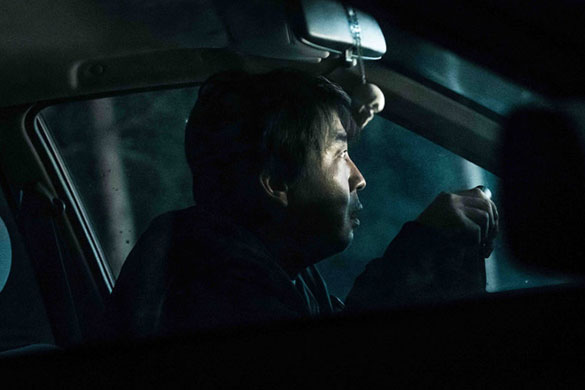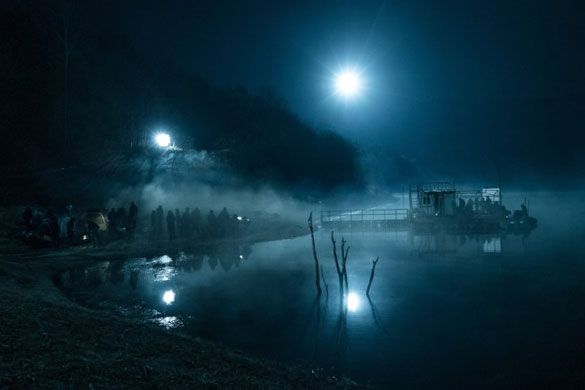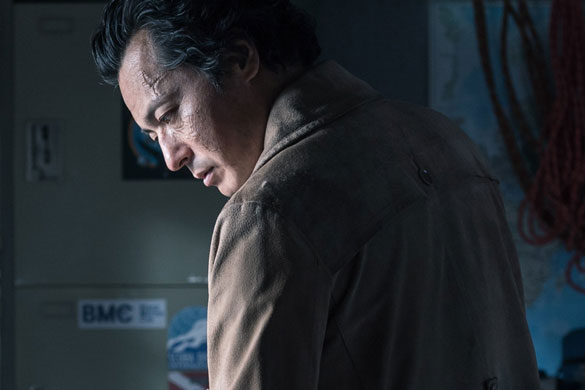
 |
||||
Hyun-su (Ryu Seung-ryong) is a husband and father who desperately wants to give his family a better life. Having brought an apartment he can ill-afford, on the insistence of his wife, Hyun-su takes the decision to accept a job as a security guard looking after a dam in a remote village, his plan being to rent the new apartment out and move his family into accommodation provided as part of his employment, at least until his financial burdens ease.
Review: The early stages of Seven Years of Night are essentially split into three threads which gradually coalesce as the overall narrative unfolds and moves towards culmination. The two main threads of the three focus on Hyun-su and Young-je in the lead-up to Hyun-su’s car ploughing into 12-year-old Se-ryung and hurling her broken body a significant distance up the road, in the process perfectly detailing the part each man has ultimately played in her death - Hyun-su obviously guilty of driving inebriated and failing to pay due care and attention (though the full extent of his involvement is held back for a shocking revelation later in the film); while Young-je’s iron fist abuse of his daughter is entirely to blame for her attempt at escape, his deeply threatening pursuit of her being wholly responsible for her impulsion to run into the road in the first place. These lead-ins not only serve as explanatory background to the main narrative – in the process comparing and contrasting the two men's personalities – but also combine with repeated references to and depictions of familial abuse and brutality to speak of one of the film's main themes. That is, the ‘sins of the father’ being generational rather than isolated, if you will (at one point Hyun-su even states “I have become my father”).
The third of the aforementioned beginning and ongoing threads is the implication that something supernatural may be taking place in the village and more specifically at the lake. At virtually the outset of the film it's made very clear that the locals are convinced the village lake is haunted and the evil it contains is responsible for anything untoward taking place in the area, fears which are further fuelled by the discovery of Se-ryung’s body in its depths. However, there are to my mind a couple of fairly major problems with this thread:
From the dark and fairly twisted depiction of the shaman ritual to the appearance of a sole female on the edge of proceedings warning of impending doom, Choo Chang-min appears to be trying to channel Na Hong-jin’s The Wailing on numerous occasions, while disembodied voices calling to characters (albeit from a well rather than a cave) positively scream of Huh Jung’s The Mimic - their appearance together making the supernatural elements of Seven Years of Night feel like a hybrid of the two. As far as I'm concerned, you can take that as an answer to the earlier question of why Choo Chang-min chose to play the (possible) supernatural card in the first place but frankly these various elements’ cinematic origins are to my mind so blatant (in spite of the narrative being based on Jeong Yu-jeong’s 2011 novel A Night of Seven Years) that Choo Chang-min more often than not could be accused of aping rather than originating. Seven Years of Night moves along at a fairly brisk pace (the death of Se-ryung comes at the 30 minute mark, but still wholly feels like it's far earlier in proceedings) though repeated flashback sequences do at times tend to slow things to a degree. That's really only a niggle at the end of the day but what is more deserving of criticism is the fact that Seven Years of Night is too long (even at 2hrs 3m duration). Simply put, on two specific occasions the narrative feels like it has reached its natural conclusion, only to then carry on. These story extensions/completions are worthwhile in their own right but their placement following big, seemingly final moments leaves them ultimately feeling far more like post main story codas.
Seven Years of Night (7년의밤) / 2018
|
||||
All images © CJ Entertainment Review © Paul Quinn |
||||



